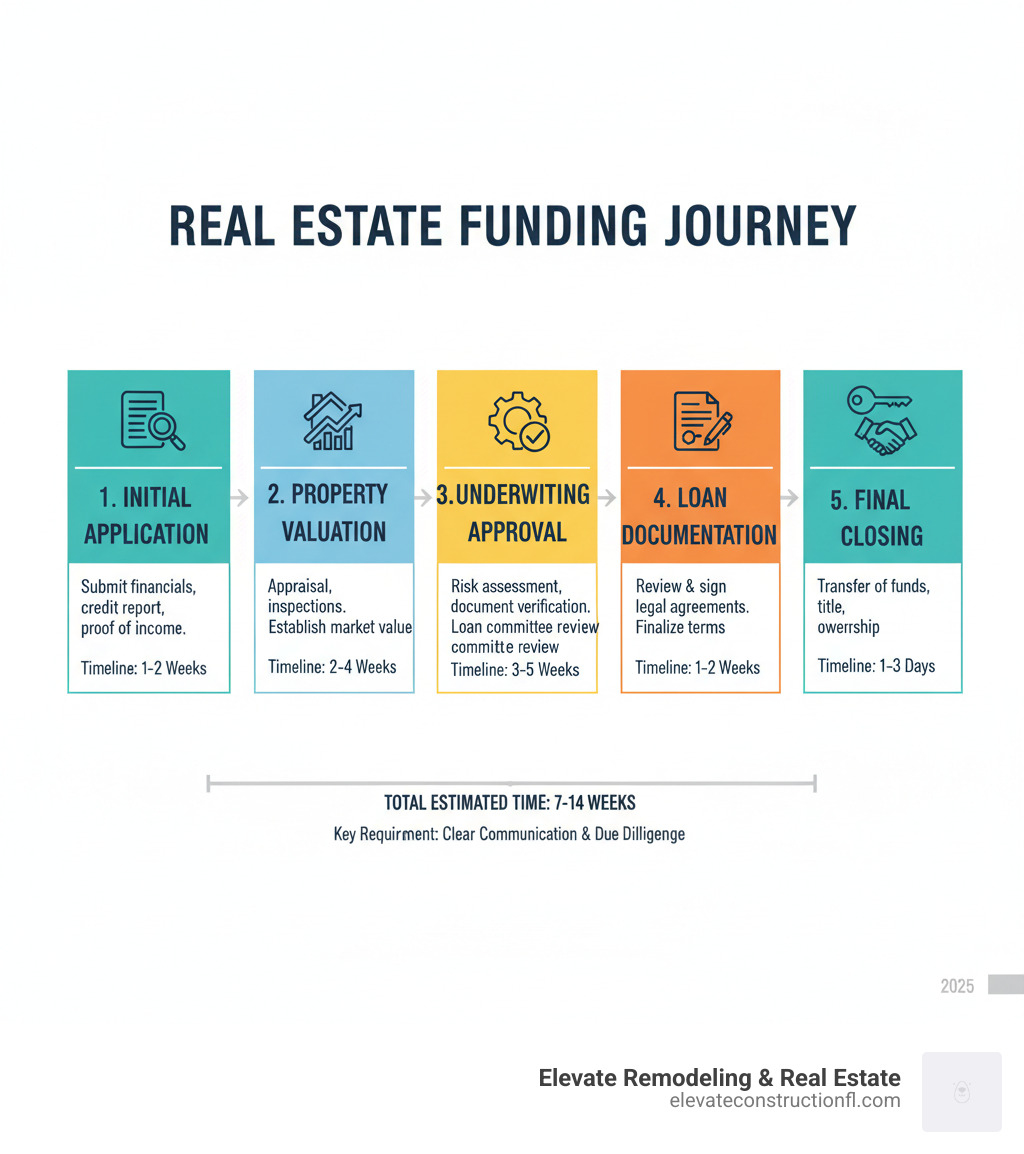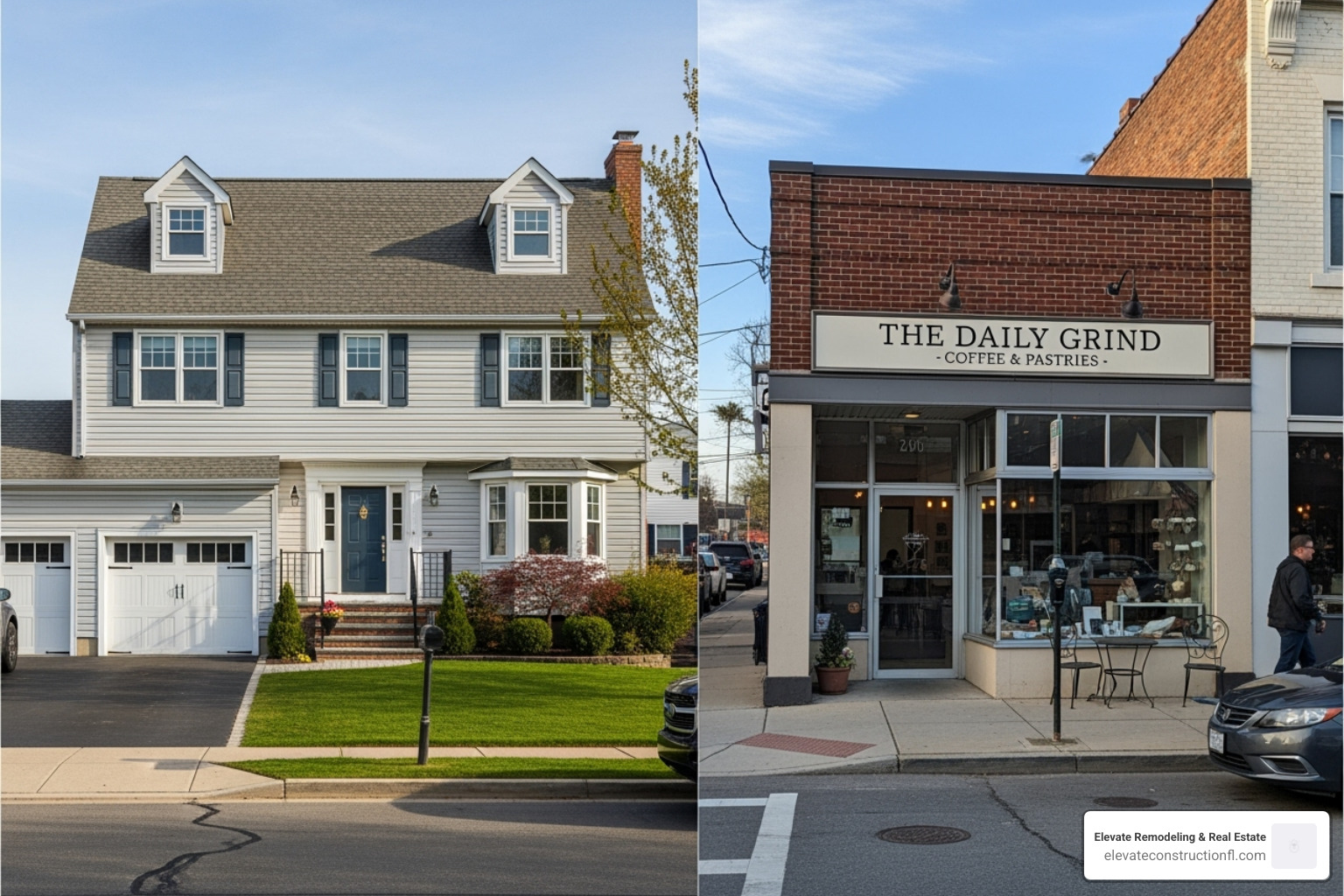Your Guide to Securing Property Capital
Real estate funding is the backbone of property investment success. From traditional bank mortgages to creative seller financing, the right funding strategy can make the difference between a profitable investment and a missed opportunity.
Quick Answer: Real Estate Funding Options
- Traditional Mortgages – Banks, credit unions (3.5-20% down payment)
- Government-Backed Loans – FHA, VA, USDA loans (lower requirements)
- Hard Money Lending – Fast approval, asset-based (higher interest rates)
- Private Lending – Individual investors, flexible terms
- Seller Financing – Owner acts as lender, faster closing
- Self-Directed IRAs – Use retirement funds for real estate
- Real Estate Crowdfunding – Pool funds with other investors ($100+ minimums)
The landscape of real estate funding has evolved. While conventional bank loans remain popular, alternative sources offer solutions for investors who don’t fit traditional lending boxes. Savvy investors understand that the right funding can open up opportunities others miss.
Whether you’re looking to fix and flip properties in Tampa Bay or build a long-term rental portfolio, understanding your funding options is crucial. Each funding type serves different investment strategies and timelines.
At Lift Remodeling & Real Estate, we’ve guided countless clients through the complexities of real estate funding. Our hands-on experience with both the construction and financing sides of real estate gives us unique insight into matching funding solutions with project needs at liftconstructionfl.com.

The Foundations of Real Estate Finance
Real estate finance is the specialized field that turns property ownership dreams into reality. At Lift Remodeling & Real Estate, we know the right financing strategy is key to open uping profitable projects. Real estate investment remains a reliable path to wealth, offering benefits like steady cash flow, property appreciation, and tax advantages.
Smart real estate funding starts with understanding a property’s financial DNA through property valuation, risk assessment, cash flow analysis, and solid market research. As LexisNexis notes, “Lending against the cash flow generated by a property is the most traditional form of real estate finance,” a time-tested strategy for investment properties.
Key Factors for Evaluating Financing Options
Choosing the right funding is crucial. Consider these key factors:
- Credit Score: A higher score open ups better rates and more options.
- Down Payment: Typically 3.5% to 20% for traditional loans, but this varies.
- Interest Rates: Small differences can mean thousands saved over the loan’s life.
- Loan-to-Value (LTV) & Debt-to-Income (DTI) Ratios: Lenders use these to assess risk.
- Loan Terms & Closing Costs: Understand the full repayment schedule and upfront fees.
Residential vs. Commercial Real Estate Funding
Residential and commercial properties are funded differently.

Residential properties (single-family homes, duplexes) usually have longer terms (15-30 years) and standardized approvals. Down payments for investment properties are often 15% to 25%.
Commercial properties (offices, retail) involve larger loans, shorter terms (5-10 years), and higher down payments (20-40%). The underwriting process is more complex, focusing on the property’s income potential and your business experience.
Essential Principles for Evaluating Investments
Look beyond the surface and focus on these key metrics:
- Return on Investment (ROI): Compares annual income to initial costs to measure profitability.
- Capitalization Rate (Cap Rate): A quick way to compare income properties by dividing net operating income by market value.
- Net Operating Income (NOI): A property’s earnings after operating expenses but before debt service.
- Cash Flow Analysis: Ensures rental income covers all expenses, creating positive cash flow.
- Risk Assessment: Identifies potential issues like market volatility, tenant stability, and unexpected costs before they become expensive problems.
Traditional Real Estate Funding: Mortgages and Government-Backed Loans
Traditional mortgages from banks, credit unions, and mortgage lenders are the most common form of real estate funding. These institutions typically require down payments from 3.5% to 20% and offer competitive rates and predictable terms.
At Lift Remodeling & Real Estate, we guide our Tampa Bay clients through these traditional options. You can find more info about our loan & funding services to see how we streamline the financing journey.
Conventional and Portfolio Loans
Conventional mortgages are not government-backed and come in two main types:
- Fixed-rate mortgages: Your interest rate and monthly payment remain the same for the entire loan term (e.g., 15 or 30 years).
- Adjustable-rate mortgages (ARMs): Start with a low fixed rate that later adjusts based on market conditions.
Loans under the annually-updated conforming loan limit can be sold to Fannie Mae and Freddie Mac, often resulting in better rates.
Portfolio loans are kept by the lender instead of being sold. This gives them flexibility to finance unique properties or work with borrowers who don’t fit the standard mold, making them a great option for complex situations.
Government-Backed Loan Programs
These programs make homeownership more accessible by reducing risk for lenders.

- FHA loans: Backed by the Federal Housing Administration, they allow for lower credit scores and down payments as low as 3.5%.
- VA loans: For veterans, active service members, and qualifying spouses, these loans offer the incredible benefit of no down payment and no private mortgage insurance.
- USDA loans: Offer zero-down financing for qualified buyers in eligible rural and suburban areas.
- 203K loans: An FHA program perfect for renovation projects, allowing you to finance both the purchase and repair costs in one loan.
At Lift Remodeling & Real Estate, we specialize in changing fixer-uppers using financing like 203K loans. Check out more info about remodeling construction to see how we can help.
Exploring Alternative & Creative Financing Solutions
When traditional bank loans don’t fit your project’s needs—like a fast-closing fix-and-flip or a non-standard credit situation—alternative financing offers the speed and flexibility required. These creative approaches provide custom solutions when you need funding in days, not months.
Hard Money and Private Lending Options
Hard money loans are short-term, asset-based loans that focus on the property’s value, not your credit score. While interest rates are high (10-18%), they are perfect for fix-and-flip projects that require rapid funding.
Private lenders are individuals who lend their own money, often with more flexible terms than banks. These deals are relationship-based and can be custom to your project’s specific needs.
| Feature | Hard Money Lenders | Private Money Lenders |
|---|---|---|
| Interest Rates | Extremely high (often 10-18% or more) | High (often 8-15%), can be negotiated |
| Loan Terms | Short (6-24 months), ideal for fix-and-flips | Short to medium (1-5 years), more flexible |
| Speed | Very fast (days to weeks) | Fast (weeks), depends on relationship |
| Primary Use | Asset-based, property value is key, less focus on credit | Relationship-based, flexible terms, individual investors |
Seller Financing and Lease-to-Buy Options
With seller financing, the property owner acts as the lender. You make payments directly to them, often resulting in a faster closing, lower costs, and a more flexible down payment.
Lease-to-buy options allow you to lease a property with the right to purchase it later at a set price. This gives you time to improve your credit or save for a down payment, which is useful in competitive markets like Tampa Bay.
Using Retirement Accounts for Real Estate Funding
A Self-Directed IRA (SDIRA) or Solo 401(k) allows you to invest in real estate while keeping your retirement account’s tax benefits. You can buy properties or make private loans, with all profits returning to your account. The IRS has strict rules, so professional guidance is essential. Another complex option is a ROBS (Rollover as Business Startup), which lets you use retirement funds to start a business but carries significant risk.
Real Estate Crowdfunding and Peer-to-Peer Lending
Online platforms have made real estate funding more accessible. Real estate crowdfunding lets you invest in projects with small amounts, often starting at just $100 to $1,000.
- Equity crowdfunding: Buy shares in a property and become a partial owner.
- Debt crowdfunding: Lend money to developers and earn interest.
These platforms offer a way to earn passive income from real estate without the responsibilities of property management.
Navigating the Funding Landscape: Professionals, Risks, and Resources
Securing real estate funding requires more than knowing your options; it’s about building the right team, understanding risks, and using the best resources. At Lift Remodeling & Real Estate, we know that careful planning with experienced professionals is the key to a successful transaction.

Key Professionals in Real Estate Finance
Assemble a team of specialists to guide your funding journey:
- Real Estate Analysts: Research market trends and property values to provide data-driven insights for smart decisions.
- Mortgage Underwriters: Review loan applications to assess risk and give the final approval for traditional loans.
- Commercial Loan Officers: Structure complex deals for commercial properties that residential lenders can’t handle.
- Real Estate Asset Managers: Help optimize your investments by maximizing returns and maintaining property value over time.
Finding Funding Sources and Managing Risk
Finding the right funding requires persistence. Powerful tools include networking at local meetups, using online lender marketplaces to compare offers, and joining real estate investment clubs in the Tampa Bay area for education and connections. Also, explore potential Government grants and programs.
Every investment carries risk. Mitigate default risk with thorough due diligence, manage market risk by understanding local economic cycles, and prepare for interest rate risk by considering rate trends in your strategy. Balancing opportunity with prudent risk management is essential.
Understanding REITs
Real Estate Investment Trusts (REITs) are companies that own or finance income-producing properties. While not a direct funding source for your own purchases, they offer a way to invest passively in a large real estate portfolio.
When you buy REIT shares, you gain exposure to real estate and earn dividend income without the hassles of property management. Publicly traded REITs are highly liquid, sold on stock exchanges. Understanding REITs provides a broader perspective on real estate investing and can complement a direct ownership strategy by providing diversification.
Frequently Asked Questions about Real Estate Funding
At Lift Remodeling & Real Estate, we’ve helped many Tampa Bay investors steer property financing. Here are answers to some of the most common questions we hear.
What is the easiest type of real estate funding to get?
While cash is always the simplest, the “easiest” loan depends on your situation.
- Hard money loans are fast and focus on the property’s value, not your credit, but have high interest rates.
- FHA loans are accessible for residential buyers with lower credit scores and smaller down payments.
The easiest funding is the one that best aligns with your financial profile and investment timeline.
How much of a down payment do I need for an investment property?
For traditional investment property loans, expect to put down 15% to 25%. However, creative strategies can lower this amount.
If you buy a multi-family property and live in one unit, you may qualify for an owner-occupied loan with a down payment as low as 3.5% with an FHA loan. With seller financing or private money, the down payment is negotiable and depends on the deal and your relationship with the lender.
Can I get real estate funding with a bad credit score?
Yes, but you’ll need to be creative. A low credit score doesn’t close all doors to real estate funding.
- Hard money lenders prioritize the asset’s value over your credit history.
- FHA loans have more lenient credit requirements than conventional loans.
- Private lenders and seller financing are relationship-based and can be flexible if you present a strong deal.
Securing funding with challenging credit requires more effort, but focusing on finding great deals and building relationships can lead to success.
Your Next Step in Real Estate Investment
We’ve explored a wide range of real estate funding options, from conventional mortgages to creative solutions like seller financing. The key takeaway is that the right funding strategy is not one-size-fits-all; it must align with your specific goals, timeline, and financial situation. Today’s diverse funding landscape offers opportunities for every type of investor.
At Lift Remodeling & Real Estate, we know funding can be overwhelming. That’s why we offer an all-in-one solution in Tampa Bay. We don’t just manage your remodeling project; we guide you through the funding maze to find the perfect financing for your vision.
Great real estate opportunities don’t wait. With an experienced partner who understands both construction and finance, you can move forward with confidence.
Ready to turn your real estate goals into reality? Contact us to discuss your project funding and let’s lift your investment journey together.


